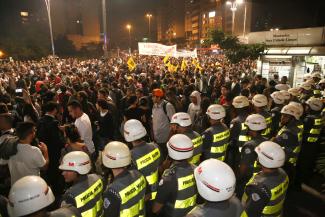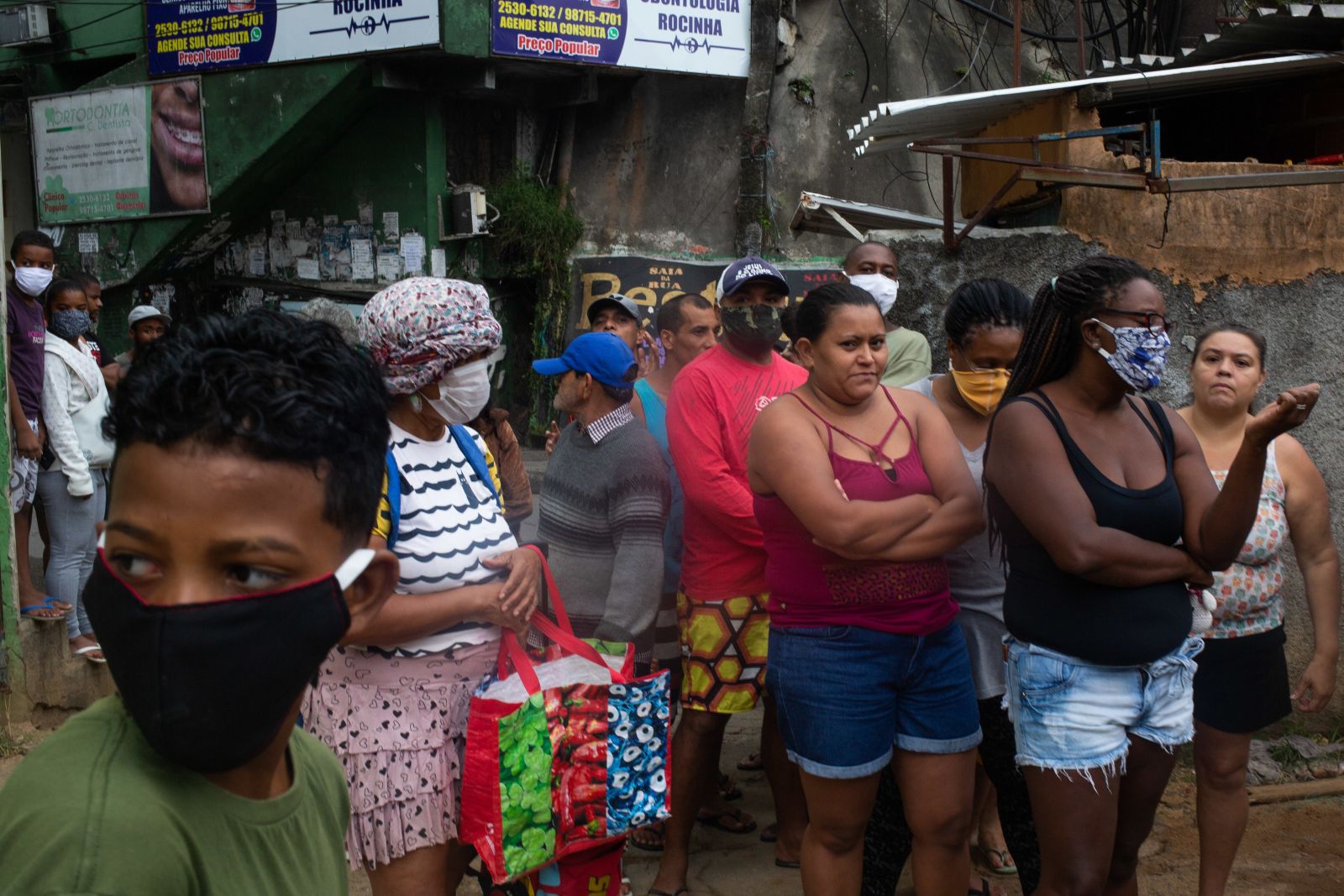Sports event
Economic frustration

President Dilma Rousseff took office three years ago amid high hopes. She said she would improve the country’s poor systems for health care, education and welfare in general. Moreover, she said she would tackle crime and improve the housing situation. She has not delivered.
Public ire has reached a peak, as a big event – the Football World Cup from June 12 to July 13 – looms on the horizon. The World Cup this year and the Olympic Games in 2016 were supposed to provide economic benefits through tourism and investment. Instead, many people feel that $ 11 billion has mostly been wasted, including $ 4 billion used to build and refurbish football stadiums.
Not just the government, but also World Cup governing body, Fifa, is blamed for the debacle. "Fifa and the government have managed to alienate the Brazilian football enthusiasts – that is quite a feat," says Thomas Fatheuer, a former director of the Heinrich-Böll-Foundation’s office in Brazil.
Since last year, country-wide protests have subsided somewhat, though many observers fear there is a powder keg of unrest waiting to be ignited. Only weeks ahead of the event, the police once more fired tear gas at people demonstrating for better public services in May.
Major grievances have been the relocation and eviction of over 15,000 families – often against their will – to make way for stadiums, and the dramatic rise in rents. Many Brazilians think real-estate speculators are taking advantage of the World Cup.
Initially, many people living in Brazil’s disadvantaged urban neighbourhoods, which are called "favelas", agreed to being relocated. They were promised better housing or compensations. But that has not materialised to the extent planned, Fatheuer said at an event hosted by ENGAGEMENT GLOBAL in Berlin in May.
Brazil’s public infrastructure needs huge investments. In the eyes of many people, there has been overspending on "white elephant" stadiums instead. Football clubs have already stated that they will not use them after the World Cup, reports Jens Weinreich, a German sports journalist and book author. According to him, people are angry about corruption too.
The main reason for protests, however, is economic frustration. The inflation rate is currently six percent, and high interest rates are threatening to choke growth. The economy is expected to expand by less than two percent this year.
President Rousseff has tried to curb inflation through measures that are seen by economists as unsustainable in the long run – like doing away with fuel duties, lowering public transport fares, cutting taxes on food and subsidising electricity tariffs. Her critics point out that she is doing all this only a few months ahead of the presidential election.
Poor new middle class
The government has been touting its growing middle class, but this is, according to Böll-Foundation’s Fatheuer, "an ideological smokescreen." He says the new middle class is defined as people earning the equivalent of € 100 to € 300 a month. "These people might now be able to buy a TV set, but that won’t change their situation dramatically," he says. "Brazil is not a low-cost country."
Hopes for huge tourism revenues look set to be disappointed as well. Reasons include safety concerns, slow visa processing, the lack of hotels near the sports venues and a generally underdeveloped infrastructure. Perhaps no one illustrates just how bad the atmosphere has become better than Brazil’s greatest football icon, the 73-year-old World Cup legend Pele. He recently told German sports magazine Sport Bild that the situation is a "disgrace."
Ellen Thalman









